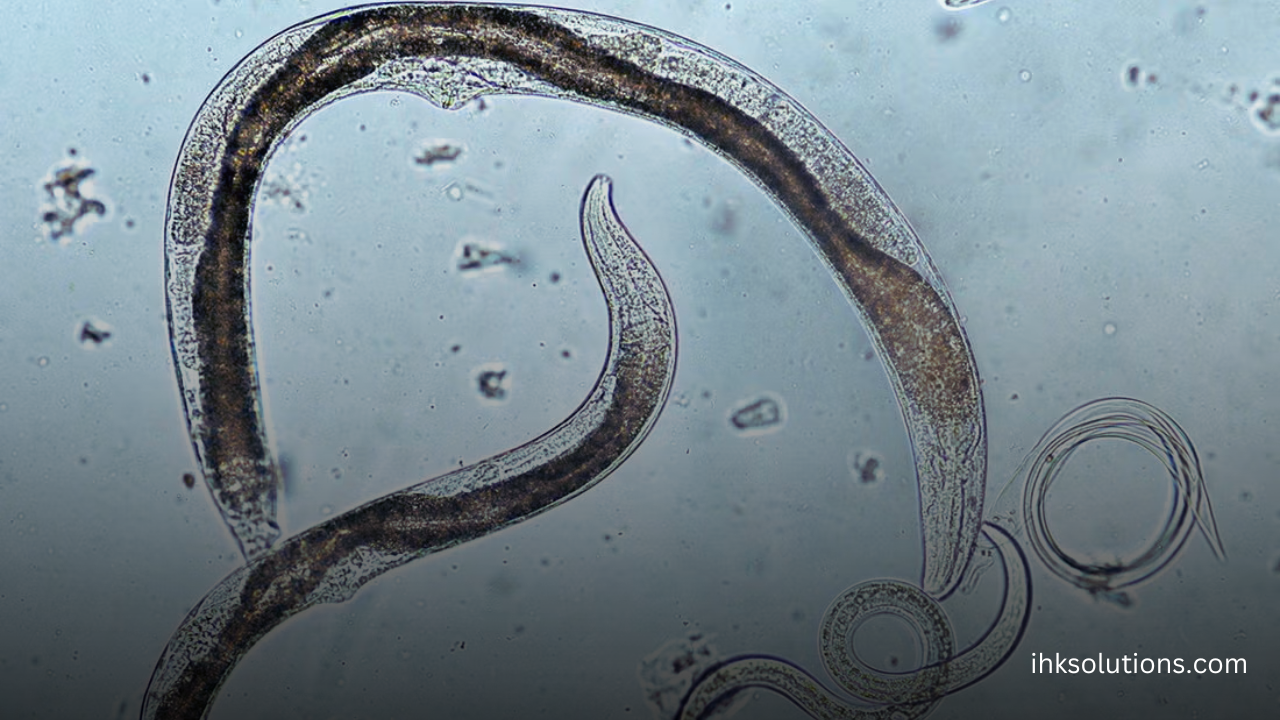A Radical Change in Disease Theory: How Hidden Viruses in Nematodes Could Rewrite Textbooks

Advanced research has revealed that nematodes, parasites that infect millions worldwide, carry numerous unknown viruses that could cause serious diseases.
Pioneering Research on Parasitic Nematodes
A new study has found that parasitic nematodes, responsible for infecting over a billion people globally, harbor viruses that may unlock the mystery of why some of them cause severe diseases.
The research, conducted by the Liverpool School of Tropical Medicine (LSTM), used advanced bio-mining techniques to identify 91 RNA viruses in 28 species of parasitic nematodes, which represent 70% of those that infect humans and animals. These viruses are often asymptomatic or not dangerous, but some can lead to life-altering severe illness.
Nematodes are the most abundant animals on Earth, found across all continents, infecting many species, including humans, as well as important agricultural and economic crops and animals. However, in many cases, scientists do not understand how certain nematodes cause specific diseases.
Implications for Understanding and Treating Diseases
The new research, published in Nature Microbiology, opens the door for further study on whether these newly discovered viruses—of which only five were previously known to science—could contribute to many chronic and debilitating conditions. If a connection is proven, it could pave the way for more effective treatments in the future.
Mark Taylor, a Professor of Parasitology at LSTM, said, “This is a really exciting discovery that could change our understanding of the millions of infections caused by parasitic nematodes. Finding an RNA virus in any living organism is significant because these types of viruses are known disease agents. When these worms, which live inside us, release these viruses, they spread throughout the blood and tissues, triggering an immune response.
“This raises the question of whether any of the diseases caused by these parasites could be due to the virus rather than the parasitic nematodes themselves.”
The Impact of Viruses on Diseases Caused by Parasitic Nematodes
Parasitic nematodes, including hookworms and whipworms, can cause severe abdominal issues, bloody diarrhea, stunted growth, and anemia. Infection with nematodes can lead to disfiguring conditions such as lymphatic filariasis, or “elephantiasis,” and onchocerciasis, or “river blindness,” which can cause blindness and skin diseases.
The authors of the study suggest that these newly identified viruses may play a role in some of these conditions. For instance, onchocerciasis-associated epilepsy (OAE), which occurs in children and adolescents in sub-Saharan Africa, has been linked to onchocerciasis. However, it is unknown why this leads to neurological symptoms like uncontrollable head nodding, severe stunting, delayed puberty, and poor mental health.
One of the viruses found in the parasites causing onchocerciasis identified in the new study is a rhabdovirus—the same type that causes rabies. The authors suggest that if this virus infects or damages human nerves or brain tissue, it could explain the symptoms of OAE.
The full extent and diversity of viruses living in parasitic nematodes, how they affect the biology of these nematodes, and whether they act as drivers of disease in humans and animals, now require further study.
Personal Motivation of the Researcher and Future Studies
The insightful discovery of these previously hidden but widespread viruses was first made by Dr. Shannon Kwik, a postdoctoral researcher at LSTM and the lead author of the new study. She initially used the same data extraction method to examine viruses within mosquitoes that spread diseases before deciding to investigate nematodes.
Dr. Kwik, who is from Indonesia, a country burdened by many parasitic nematodes, said: “As a child, I saw many people affected by these diseases and suffered from dengue fever on three occasions. This sparked my interest in tropical diseases. Diseases caused by parasitic nematodes are lifelong, chronic conditions that continuously impact people’s lives. They have a significant effect on people’s quality of life, economic productivity, and mental health.
“There are many studies on the mosquito microbiome and how the bacteria living within them can prevent the spread of viruses, potentially stopping vector-borne diseases like dengue fever. This interaction between organisms within the same host made me think—what might also be inside parasitic nematodes? This discovery will now be the focus of our research.”
Reference:
“RNA Viruses Found in Parasitic Nematodes Can Trigger Antibody Responses in Vertebrate Hosts”
September 4, 2024, Nature Microbiology.
DOI: 10.1038/s41564-024-01796-6
The study also included researchers from the University of Antwerp and the Catholic University of Leuven in Belgium, Brock University in Canada, the University of Queensland in Australia, the University of Buea in Cameroon, and the University of Energy and Natural Resources in Ghana.



